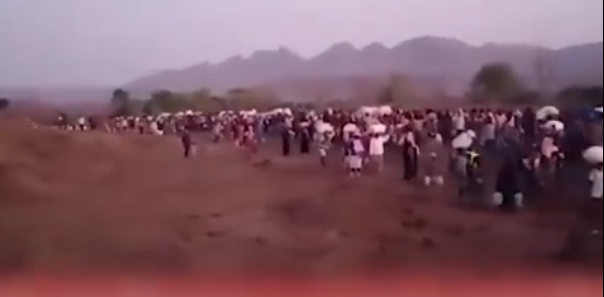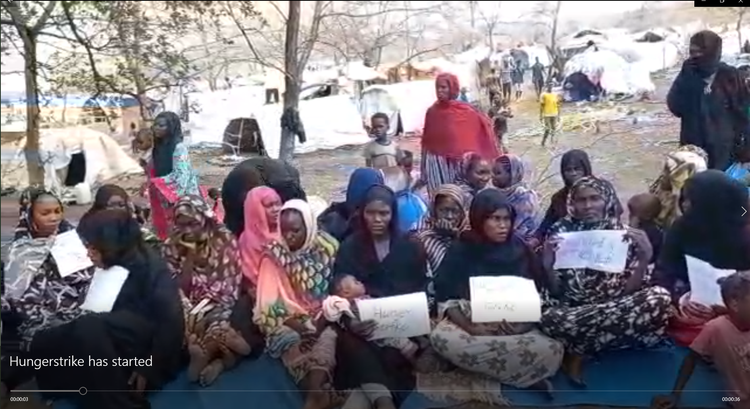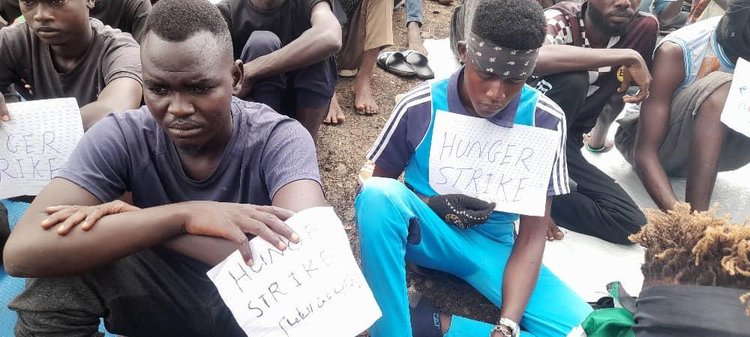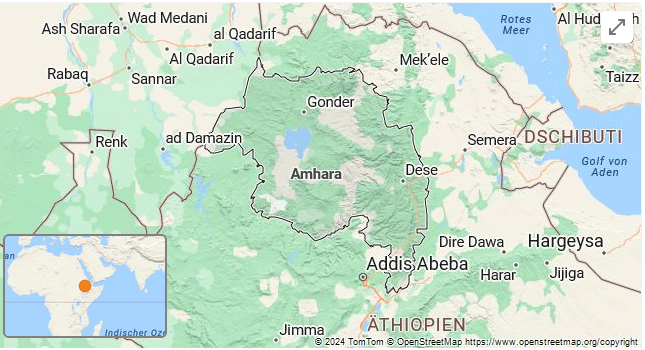Desperation and Hope: Sudanese Refugees' Struggle in Amhara Region Camps
May 30th, 2024 - written by: Lubna Isam **
For years, Sudanese refugees in the Amhara Region have endured a litany of challenges, from insecurity to environmental hazards and declining health. Their appeals for assistance have too often fallen on deaf ears, leaving them to navigate a precarious existence on the fringes of society.
After 15 April 2023 the periphery of the Amhara Region, the Olala and Comer refugee camps, served as both a sanctuary and a crucible for Sudanese refugees fleeing conflict and hardship. Despite their hopes for safety and stability, these camps have become emblematic of a broader crisis, where desperation and resilience collide against a backdrop of neglect and suffering.
But It seems that Sudanese people acquired the art to resist different kinds of injustice and repression and the ability to organize in masses from the fresh experience of the December revolution of 2018. This brief report tells the deliberately ignored story of Sudanese Refugees' struggle in Ethiopia.

The story started when more than 6000 Sudanese Refugees from the Olala and Comer refugee camps decided to march to Gondar because they could not stand the inhumane living conditions in the refugee camps where rape, harassment and repeated attacks by local militias known as Shifta and Fano, added to that basic necessities such as food, medical supplies, and clean water are scarce commodities, exacerbated the already dire circumstances faced by refugees.
Due to the aforementioned circumstances the 6000 Sudanese Refugees from the camps decided to march to Gondar city, the historical capital of Ethiopia, which is around 180km from the camps. The exodus started on the 1st of May and consisted of:
2133 children.
1017 women.
1719 men.
1135 sick persons.
According to the Sudanese refugees in Amhara region's statement, the Ethiopian authorities stopped the masses 3km from the camp, preventing them from continuing and held them captive in the woods of Olala, denying them all life necessities. Any refugee seeking aid beyond the confines of the camps faced detention and coercion from the Ethiopian authorities, who seek to compel their return against their will.
Situation in the Camp in Olala woods, 15.05.24
Amidst the grim realities of camp life, Hassan Chamoun's testimony adds a poignant layer to the narrative. He recounts the tragic loss of a refugee woman to suicide, driven by despair at the lack of progress and hope for a better future. Yet, amidst the darkness, a flicker of hope emerges with the birth of a child, a testament to the resilience and tenacity of the human spirit. The crude tools used—a razor blade to sever the umbilical cord—underscore the stark realities faced by refugees, where even the most basic necessities are in short supply.
Now it's almost one month since the marching people being detained in the wild forest of Olala, with no shelter or drinkable water let alone food and medical care. On May 22.02.24 the adults declared a hunger strike until their demand to be evacuated to a safe country is fulfilled. moving to a safe country seems reasonable.


According to accounts from national and international human rights organizations, as well as media reports, a grim shadow looms over the Amhara Region, particularly in the small town of Merawi. Allegations have surfaced of Ethiopian forces perpetrating atrocities, including the execution-style killings of dozens of civilians. While the Ethiopian government vehemently denies targeting civilians or carrying out ethnically motivated violence, evidence suggests a more complex and troubling reality.
We are here, no organization came to help us. No drinkable water, no food or medicines, the kids are having only two meals a day the adults get nothing. The only thing that the Ethiopian authorities say to us is to return back to the camp which being ruined by a wind, there is no camp to return to. No we are here in this forest which is full of snakes and other dangerous creatures and now we declare hunger strike either we live in dignity or die right here in this spot
Reports point to the emergence of the "Fano" group, which, following its collaboration with Ethiopian forces, has embarked on its own campaign of violence. Motivated by historical grievances and a desire for self-preservation, the Fano group has plunged the Amhara region into a vortex of instability and unrest since August 2023.
This escalation of violence not only exacerbates the already dire situation for Sudanese refugees but also deepens the humanitarian crisis gripping the region. The cycle of violence threatens to engulf innocent civilians caught in the crossfire, further underscoring the urgency of addressing the root causes of conflict and instability in the Amhara Region.
The reports of violence and instability in the Amhara Region directly impact the Sudanese refugees residing in the Olala and Comer camps. As tensions escalate and security deteriorates, the refugees find themselves increasingly vulnerable to the ravages of conflict. The humanitarian crisis facing these refugees is not isolated but is intertwined with the broader challenges facing the region.

The plight of Sudanese refugees in the Amhara Region is a stark reminder of our collective failure to uphold the fundamental rights and dignity of all individuals, irrespective of their nationality or circumstance. Urgent action is needed to address the humanitarian crisis unfolding within the confines of the camps, lest we continue to bear witness to the erosion of hope and humanity.
As the international community grapples with the complexities of the situation, the need for a concerted effort to promote peace, protect human rights, and alleviate suffering has never been more pressing. Failure to heed these calls risks perpetuating a cycle of violence and despair, with devastating consequences for all the region.
** Lubna Isam is a writer, blogger, journalist and activist. She likes to write novels and short stories that reflect the trials and tribulations of contemporary African society. She published multiple novels in English and Arabic with publishers in the UK, Kuwait, Sudan, as well as online.